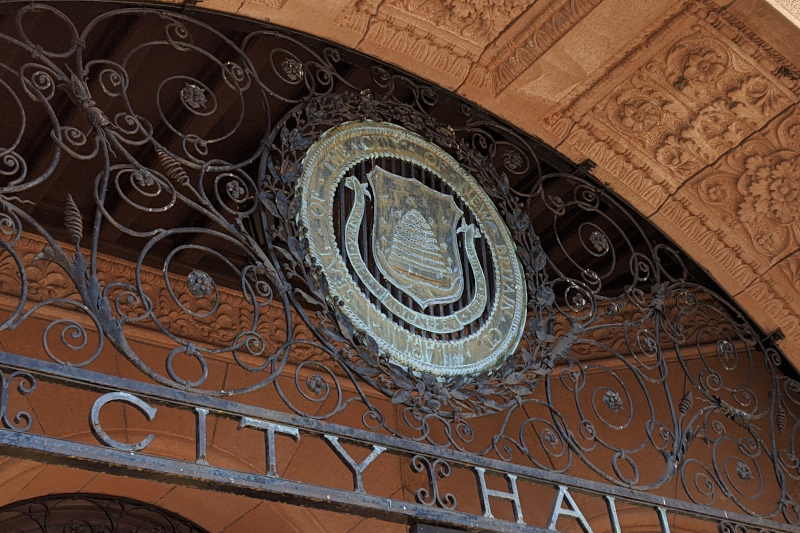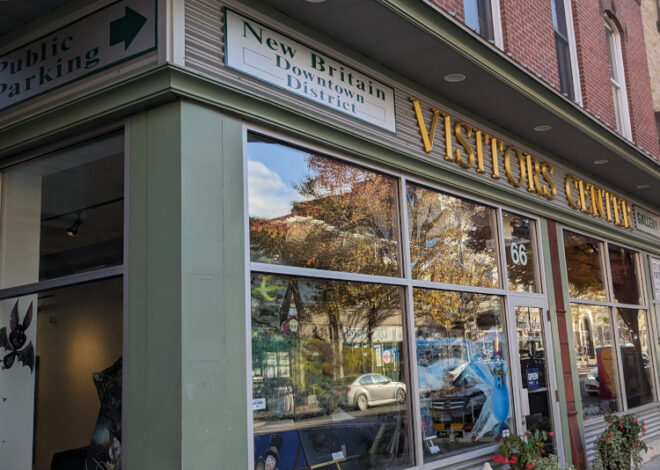
Some Democratic Council Members Vote With Republicans to Defeat Democrats’ Own Proposal to Eliminate Stewart-Proposed Tax Increase
After the Democratic majority on the New Britain City Council had approved an amendment to the city budget that would have rejected a tax increase proposed by Mayor Erin Stewart (R), the budget plan was defeated when a number of Democratic Council members voted with Republicans to vote down the budget plan.
At least Democratic Ald. Nate Simpson (D-1), Ald. Neil Connors (D-4) and Ald. Wilma Barbosa (D-2) voted against the budget plan that they had just voted to approve as an amendment. The Democrats’ amendment had been approved on a 8 to 7 party-line vote. But, with some Democrats voting against the plan in a chaotic last minute during the final vote at Wednesday’s special budget meeting, the Council failed to approve a General Fund budget.
The final vote was 4 yes and 11 no. The vote for the Democrats appeared to come apart when Simpson and Barbosa reacted to the Council President Pro-Tempore, Ald. Francisco Santiago (D-5) saying, as the final vote was beginning, that the number he had given to the City Clerk of the Democrats’ budget plan contained an incorrect number. Santiago voted yes.
Simpson said that, while he did not agree with the Republicans on budget priorities, he said, “The budget resolution wording handed to the city clerk did NOT contain the correct information compared to our caucus’ intentions,” and that it, “It contained a devastating and factual error.”
But there was no attempt during the special budget meeting to reconsider consideration of the General Fund budget for the city.
If the Council fails to approve a budget for the upcoming year, Stewart’s proposed budget will take effect automatically.
Stewart’s budget for the upcoming year would increase property taxes more than 3% and would mean less funding, in the regular operating budget allocation for the city’s schools, after inflation. Stewart also decreased a vaguely-defined “non-operating” school grant line item from $2.7 million to $1.5 million, but has sought to portray the remaining $1.5 million as a budget increase for schools.
The Democrats’ amendment, offered by the Majority Leader, Ald. John McNamara (D-4), proposed cutting the tax rate proposed by Stewart, keeping the current 38.28 mill tax rate.
The Democratic Council members’ plan to keep the tax rate the same would have relied heavily on a net increase in state grants to the city that New Britain’s Democratic state legislators recently announced, including an additional one-time allocation in the amount of $4 million to, “help cover a shortfall in the city’s budget.”
McNamara said that the Democrats’ proposal would make a number of cuts, including $710,471 in cuts by keeping nine city positions vacant and making $75,000 in additional cuts. The proposal would save $45,000 by cutting the city’s lobbyist.
Among the cuts would be to leave vacant the proposed “Chief Executive Officer” position that was controversially approved in a City Charter referendum in which voters were not told in the referendum question that they were being asked to approve the creation of the six-figure salary position.
Republican Ald. Sharon Beloin-Saavedra (R-1) asked city agencies if the positions in the Democrats’ proposal are vacant, who named at least two of the positions that are already filled or are in the process of being filled. But department heads noted some positions that are not currently filled. Beloin-Saavedra and Ald. Jerrell Hargraves (R-2) argued in favor of the Chief Operating Officer position.
Connors had proposed another amendment to restore the Chief Operating Officer position in the budget for $150,000, but the amendment was voted down by both Democratic and Republican Council members. Republicans said the proposal was not worded properly.
The budget that has been under consideration is for the fiscal year that begins on July 1, 2024 and goes until June 30, 2025. It affects property taxes due on July 1st of this year and January 1, 2025.
Editor’s note (5/23/2024): The article was updated with additional details of the final moments of the Council’s budget vote.
Editor’s note (5/23/2024): The article was updated to include comments from Ald. Simpson.



